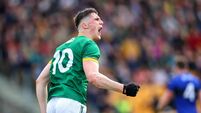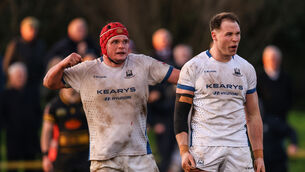Try from €1.50 / week
SUBSCRIBELatest Sports
- ‘They were like bombs’: Helenio Herrera’s little white pills kept Inter’s players buzzing
- SFogarty Forum: It’s official — Cork are the GAA’s cash cows
- SKieran Shannon: Forget Dublin v Kerry, Cork v Meath is the standout blue blood game next weekend
- Five football trends in new rules compared 12 months ago
Sport
Newsletter
Latest news from the world of sport, along with the best in opinion from our outstanding team of sports writers. and reporters
Most Read
Tuesday, February 17, 2026 - 8:00 AM
Tuesday, February 17, 2026 - 8:00 AM
Monday, February 16, 2026 - 1:00 PM














